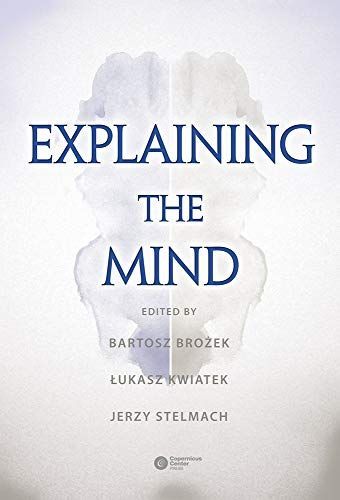
Explaining the Mind
Since the second half of the 20th century we have been witnessing a scientific revolution. Its focus has been on the explanation of how the brain works and creates the mind. The new and often surprising accounts of such varied phenomena as social bonds, emotions, language, creativity, morality, etc ., have already influenced the contemporary worldview. The scope and depth of the new revolution is remarkable, but it comes as no surprise, given that the human brain is--arguably--the most complex system in the entire universe . Its complexity is stunning: billions of neurons, each of them capable of maintaining hundreds of thousands of connections, all responsible for our behaviour, thinking, decision-making, perception, beliefs . It is this incredibly complex system that underlies our mental life and makes us human. The new revolution is truly interdisciplinary: the new data is gathered, and theories developed, with the use of different tools, techniques and methodologies . All this constitutes a real labyrinth of conceptions and perspectives, which widens and deepens our knowledge, but at the same time generates new scientific problems and opens new lines of inquiry. The contributors to this collection of essays represent various academic fields, including philosophy, primatology, psychology, and neuroscience . All these disciplines strive to achieve a better understanding of how the brain works and how it creates the mind. It is our hope that by bringing together--in one volume--various perspectives, methods, and theories, we have managed to contribute to the ongoing debates, which aim at answering the question, 'How to explain the mind?'